
The Darrell McClain show
Independent media that won't reinforce tribalism. We have one Planet; nobody's leaving, so let’s reason together!! Darrell McClain is a Military veteran with an abnormal interest in politics, economics, religion, philosophy, science, and literature. He's the author of Faith and the Ballot: A Christian's Guide to Voting, Unity, and Witness in Divided Times. Darrell is a certified Counselor. He focuses primarily on relationships, grief, addiction, and PTSD. He was born and raised in Jacksonville, FL, and went to Edward H white High School, where he wrestled under Coach Jermy Smith and The Late Brian Gilbert. He was a team wrestling captain, District champion, and an NHSCA All-American in freestyle Wrestling. He received a wrestling scholarship from Waldorf University in Forest City, Iowa. After a short period, he decided he no longer wanted to cut weight, effectively ending his college wrestling journey. Darrell McClain is an Ordained Pastor under the Universal Life Church and remains in good standing, as well as a Minister with American Marriage Ministries. He's a Believer in The Doctrines of Grace, Also Known as Calvinism. He joined the United States Navy in 2008 and was A Master at Arms (military police officer). He was awarded several medals while on active duty, including an Expeditionary Combat Medal, a Global War on Terror Medal, a National Defense Medal, a Korean Defense Medal, and multiple Navy Achievement Medals. While in the Navy, he also served as the assistant wrestling coach at Robert E. Lee High School. He's a Black Belt in Brazilian Jiu-Jitsu under 6th-degree black belt Gustavo Machado. Darrell Trains At Gustavo Machado Norfolk under the 4th-degree black belt and Former Marine Professor Mark Sausser. He studied psychology at American Military University and criminal justice at ECPI University.
The Darrell McClain show
Wall Street Just Spit Out Its Coffee
The ground shifted under America’s political feet, and you can feel the rumble from City Hall to Capitol Square. New York—long the altar of finance—just elected a socialist mayor on a platform of affordability, transit access, and universal childcare. Virginia flipped every top office behind a former CIA officer who campaigned on paychecks, federal jobs, and dignity at work. Two wins, two styles, one unmistakable signal: voters are rewarding leaders who meet real life where it hurts—rent, groceries, and stability.
We unpack how Ziran Mamdani’s biography—immigrant roots, community organizing, openly Muslim faith—became a strength because it matched the substance: fare-free buses, housing that doesn’t demand three jobs, and public goods treated as modern infrastructure. We connect his rise to New York’s deeper memory, from LaGuardia to labor, and trace why the old worship of productivity cracked after a pandemic, a rent crisis, and billionaire spectacle. The moral language matters here, too—faith against mammon, compassion against cynicism—without demanding shared theology to feel the charge.
Then we head south to Virginia, where Abigail Spanberger’s steadiness beat the spectacle. By centering affordability and protecting the federal workforce, she offered competence over culture-war theatrics. We talk stakes for both parties: why Democrats need the left’s fire to animate purpose and the center’s discipline to build maps; why Republicans misread a cycle where shutdowns and cuts landed in kitchen-table budgets. Along the way, we explore California’s Prop 50 redistricting gambit and widen the lens to the myths that keep Americans divided—especially the “lazy millions” narrative that blames downward while power concentrates upward.
If you care about affordable housing, living wages, public transit, and a middle class worth the name, this conversation maps the new political imagination taking shape. Subscribe, share with a friend who loves policy over posturing, and leave a review telling us: which policy on the table would change your daily life first?
Socialist in the city of Mamon, you could feel the tremor before the results even dropped something electric pulsing through the burrows. It wasn't just an election night, it was a reckoning. New York, the capital of capitalism, the city where skyscrapers kiss heaven and the rent, climbs faster than the subway fair just chose a socialist for mayor. Let that breathe for a second. In the city that invented Wall Street, the people just voted for the son of a Ugandan-born Muslim filmmaker and an Indian-born poet who believes public good matters more than private gain. Ziran Mamdani, 34 years old, barely old enough to remember the Giuliani years, just walked into City Hall carrying the hopes of the janitor, the cabbie, the single mother, and the student buried under debt. New York worships productivity the way ancient empires worship gods. The temples are glass, the priests wear suits. Every ticker symbol, every IPO, every luxury tower built atop displaced tenants, all part of the same liturgy. We've built an economy of offerings. We sacrificed time, health, and even conscience to keep the machine humming. And we dare to call that progress. But something cracked. Maybe it was the pandemic. Maybe it was the rent crisis. Maybe it was the site of billionaires riding rockets to nowhere while essential workers died by the thousands. Whatever it was, the illusion broke. So when Mamdani stood up and said, the city belongs to those who make it run, New Yorkers exhausted, cynical, disillusioned, suddenly remembered their own agency. The golden calf started to wobble. And the irony, it's delicious. Because this isn't supposed to happen here, not in the city of Mammon. Mamdani's rise reads like a parable. A community organizer, state assembleman, child of immigrants, openly Muslim, openly socialist, the kind of resume that would have been political poison a decade ago. But he speaks the language of the street, not the boardroom, when he says affordable housing. He doesn't mean 80% of market rate in a building guarded by doormen. He means you shouldn't have to work three jobs to afford a one-bedroom with heat that works. He talks about fare-free buses, city-run groceries, and public housing as infrastructure the way FDR once talked about electricity and roads. Radical? Maybe. But every idea we now call normal once wore that label. And the man has a poet's heart literally. His mother wrote verse. His father made films about post-colonial struggle. He grew up in stories that didn't center power but questioned it. You can hear it in his cadence, moral without being sanctimonious, hopeful, without being naive. This isn't the first time New York flirted with economic conscience. Go back to Fiorella LaGuardia in the 1930s, the little flower who took on the Tammany Hall machine and built public parks, schools, and airports during the Great Depression. Go further back to Jacob Rise exposing Teneman misery to the labor movements that bled in the streets for the weekend you now enjoy. But the pendulum swung. By the time Bloomberg left office, New York had become a theme park for the wealthy, where hedge fund interns lived in luxury high rises and lifelong residents got priced out to Jersey. Mamdanny's victory isn't just political, it's historical muscle memory. The city remembers deep down that it was built by workers, immigrants, and dreamers, not financiers. Here's where the preacher and me stirs. The Bible says, you cannot serve God in money. It's not anti-wealth, it's anti-idolatry. And brother, this city has been bowing to mammon for a long, long time. Now here comes a Muslim man in a city still bearing the scars of September the 11th suspicion, stepping into the pulpit of City Hall preaching economic justice. You don't have to share his theology to feel the moral electricity of that moment. He's not Moses, but he's standing before a modern pharaoh, the landlords, the lobbyists, the investors who believe profit is sacred, and he's saying, Let the people breathe. Will he succeed? I don't know. History is littered with reformers who couldn't survive their own revolutions. The machine is ruthless, and good intentions alone don't pay the bills. But even if his agenda stalls, the message landed. Decency still has a constituency. Compassion can win an election. That's no small thing. I've walked those streets Times Square at 2 a.m. Harlem on a humid summer night, the seven train rumbling through Queens. Every block tells a story of someone hustling to stay human in a city that monetizes everything. So when I see Zuran Mamdani walking into office, I don't just see politics, I see possibility. A faint echo of what cities could be if they remembered their souls. We keep asking whether America is ready for socialism. Maybe that's the wrong question. Maybe the question is whether America is ready for solidarity. Because solidarity is older than socialism. It's older than capitalism. It's the heartbeat of every faith that ever taught us to love our neighbor. In the city of Mamon, a new mayor just lit a candle. It might flicker. It might burn out. But for one night election night, it illuminated the faces of millions who'd stopped believing their voices mattered. You could feel it before the polls closed the air, and Virginia was thick with the smell of change. Not the cheap perfume of Copan changed speeches, but that slow burn smell of something being rebuilt after the storm. And uh sure enough, when the ballot settled, Virginia had gone blue from courthouse to Capitol Square. Governor, Lieutenant Governor, Attorney General. Every top seat. That's not just a democratic sweep. That's a recalibration of who this Commonwealth really is in the age of Trump II. S.E. Dart or let's start with Abigail Svanberger, the former CIA officer turned Congresswoman, turned governor. She didn't win because she went viral. She won because she stayed steady while everyone else was screaming. While Winsome Earl Sears was out here throwing red meat to culture warriors talking about pronouns in locker rooms, Spahnberger was talking about paychecks, childcare, and federal jobs. And that's the thing, people will listen to the loudest voice until the rent is due. Then they vote for the comma's hand. Spanberger's message was simple protect the federal workforce, protect the working class, protect Virginia's dignity. And when six and ten voters said Trump's federal cuts had hit their family directly, that was it. The argument was over. She didn't need to call her opponent extreme. She just let her opponent prove it, now Jay Jones. The man almost lost it all over one stupid, reckless text message. Imagine thinking you can casually joke about shooting a Republican speaker and not have it explode in your face. Republicans smelled blood. They went full attack Modemiers, Yuncan, Trump, Vance, all of them. They wanted Jones to drop out, crawl under the political porch, and never come back. But he didn't. He apologized and kept campaigning like a man who knew the scandal couldn't outlast Trump's shadow. Because here's what really saved him Spaumberger's win changed the mood. When voters are already rejecting the top of the Republican ticket, the wave lifts everyone behind it. Virginia Democrats didn't win because they were flawless. They won because the GOP forgot that confidence and humility still matter more than swagger. The irony of all this is rich. Trump complained that he wasn't on the ballot and that's exactly why Republicans lost. See, Trump's name might not have been printed, but his policies were carved into every paycheck. Federal workers laid off, agencies gutted, government shutdowns looming. Virginia remembers who eats when the federal government runs. Trump thought he was punishing the swamp. But a whole lot of that swamp lives in Fairfax, Norfolk, Arlington, and Newport, New Zealand. They've got you mess with people's livelihoods long enough, and suddenly you're not fighting the deep state, you're fighting the PTA. That's what this election was a revolt of the practical, then came the history books. Abigail Spanberger, first woman to govern Virginia, Gozala Hashmi first Indian and first Muslim woman to hold statewide office in the US both won because they worked, not because they represented. And that's what made the symbolism so powerful. It wasn't a diversity performance, it was competence crowned by representation. Hashmi's win matters beyond Richmond. Because on the same night, Zaran Mamdani became New York's first Muslim mayor. Two different worlds, one pragmatic centrist, one democratic socialist, but both saying the same quiet truth. America's political imagination is changing. People aren't just voting for ideology anymore. They're voting for authenticity. And authenticity doesn't always fit neatly in left or right. But now comes the test. Spanberger represents the pragmatic center, the steady hands, the incremental reformers. Mamdani, the newly crowned socialist in New York, represents the moral fire of the movement left, and both are right in their own way. Spanberger's discipline wins elections. Mamdani's passion wins hearts. The danger is when either side forgets the other. Without progressives, Democrats lose their soul. Without moderates, they lose the map. Republicans will try to paint the whole party as Mamdani's mirror, screaming radical at every turn. But Spanberger's victory proves Virginia voters aren't afraid of Democrats, they're tired of dysfunction. Here's the poetic twist: this whole story isn't about politics. It's about maturity. About a country that's maybe finally learning to separate passion from paranoia. When a people choose calm over chaos, work over words, faith over fear something holy is stirring beneath the numbers. Maybe that's the quiet revival we never saw coming. Not in church pews this time, but in polling places. It's that the adult room is open again. Americans, Virginians, especially just told every extremist on both ends, we don't need saviors with slogans, we need leaders with sense. And if you want to know what comes next, remember this Spamberger's victory is a warning shot, not a lullaby. Because if the center can hold, maybe this experiment called Democracy Still Can't Too.
SPEAKER_11:With large turnouts and an off-year election, Democrats scored big wins in yesterday's vote.
SPEAKER_08:They still have two major governors' races in Virginia and New Jersey, where voters sending a message of discontent to the White House.
SPEAKER_11:I'm Layla Falden, that's A. Martinez, and this is a first from NPR News. New Yorkers made history by electing Zohan Mandani as mayor of America's largest metropolis.
SPEAKER_04:New York! Tonight you have to learn.
SPEAKER_06:This message comes from Mint Mobile. At Mint Mobile, their favorite word is no. No contracts, no monthly bills, no hidden fees. Plan start at$15 a month. Make the switch at Mintmobile.com slash switch. That's Mintmobile.com slash switch. Upfront payment of$45 for three-month 5-gigabyte plan required, equivalent to$15 a month. New customer offer for first three months only, then full price plan options available. Taxes and fees extra. See Mint Mobile for details. This message comes from NPR sponsor Pete and Jerry X, who invites you to pause and spend a moment in the life of an organic pasture-raised car. On a beautiful sunny morning, she's foraging with her friends for tasty organic dust. She travels across the lush pasture to her favorite spot for a dust bath. She baths in the sounds of nature, soaking in the sunshine, and prepares to lay a rich, delicious egg. Learn more about Pete and Jerry's organic pasture-raised eggs at Peteandjerry's.com.
SPEAKER_08:President Trump was not on the ballot, but Democrats are celebrating their victories last night as a major rebuke of the president.
SPEAKER_11:This morning, we're looking at four races reflecting the scope of those wins. Virginia elected Democrat Abigail Spamberger as governor.
SPEAKER_02:We sent a message to the whole world. Virginia chose pragmatism over partisanship.
SPEAKER_11:New Jersey elected Democrat like a shareless governor who ran against a Republican endorsed by Trump. New Yorkers elected Zohan Mondani as their mayor, defeating former Governor Andrew Cuomo, also endorsed by Trump.
SPEAKER_04:New York! You have delivered.
SPEAKER_08:We'll start with Virginia and New Jersey and are joined by Margaret Barthel from WAMU. So how did Spanberger pull off and decide to win in Virginia?
SPEAKER_12:Yeah, she focused the whole campaign on affordability in Virginia and also talked about Trump. Virginia has hundreds of thousands of federal workers and contractors. They were, of course, affected by the Doge cutbacks and more recently the government shutdown. Here she is at her election night party in Richmond.
SPEAKER_13:To those across the Potomac who are attacking our jobs and our economy, I will not stand by silently while you attack Virginia's workers.
SPEAKER_12:Spanberger will be the state's first woman governor. She beat the Republican, Lieutenant Governor Winsomerl-Sears, who talked a lot about how transgender rights have gone too far and what she thinks is a threat to girls in school locker rooms and bathrooms. Spanberger was a three-term congresswoman before this and a former CIA officer, and really tried to portray herself as a centrist as she went out of her way last night to praise Earl Sears and her service as a Marine veteran.
SPEAKER_08:Well, Spanberger's uh tactics dissimilar to how Mikey Cheryl won in New Jersey because they both won by pretty big margins.
SPEAKER_12:Yeah, they definitely have similarities. They were in Congress together and share a background in national security. Cheryl was a Navy helicopter pilot, and they ran similar races. Cheryl also focused on affordability and pushing back on the Trump administration, particularly the decision to defund a major infrastructure project between New Jersey and New York. One difference, as you noted in the intro, is that Trump endorsed Cheryl's Republican opponent, Jack Chitterelli, a businessman and former state lawmaker. Trump did not directly endorse Winsomerle Sears in Virginia. But he did weigh in last night on the election results, saying in a post on Truth Social that he wasn't on the ballot himself, and that was why Republicans struggled.
SPEAKER_08:Now, let's uh break down the campaigns a bit because what can we take away from them? The you know, the big issues and how voters saw them.
SPEAKER_12:Yeah, I'd say Spanberger is a test case for Democrats looking to run on economic issues. She spent a lot of time talking about her plans for tackling things like housing and energy prices, workforce training, the cost of prescription drugs. Um, she argued that people should vote for her to push back on the damage the Trump administration's policies are doing to the Virginia economy, uh, which is very tied to the federal government. Uh so she appealed to people who are maybe less political, but are worried about cost of living, and also to the Democratic base, which is very upset about Trump. And it was similar for Cheryl, who also talked a lot about economics, presented herself as a centrist, and uh rising energy prices cropped up in both races. In Virginia, there was a lot of talk about the state's cluster of data centers and the power demand that comes with them. And in New Jersey, uh Cheryl has already pledged to declare a state of emergency on utility costs.
SPEAKER_08:That's WAMU's Margaret Bartell. Thanks a lot.
SPEAKER_12:Appreciate it. Thanks.
SPEAKER_08:New York City voters turned out in record numbers on Tuesday to elect a new mayor.
SPEAKER_11:Yeah, as we mentioned, Democratic nominee Zilan Mondani defeated Andrew Cuomo, the former governor who is running as an independent candidate. Mondani will become the city's first Muslim mayor, first Indian mayor, and at 34 years old, the youngest person to leave the city in more than a century.
SPEAKER_08:Member States NWNYC's Bridget Bergen joined us now to talk about this historic election. Uh, Richard, I mean it seemed like there was a lot of excitement around this one. How many people voted yesterday?
SPEAKER_09:So we know that more than two million people voted, and according to the city's board elections, that has not happened in a city mayoral race since 1969.
SPEAKER_08:Okay, yeah, so clearly lots of people excited. Um he made affordability the central message of his campaign. What do you have to say last night?
SPEAKER_09:So Mom Dani said he had a mandate for change. His signature campaign pitch included making buses fast and free, a rent for use for nearly two million tenants and rent-stabilized apartments and providing universal child care to all families from six weeks to five years old. Uh these are big, transformative, and expensive proposals, but he offered voters a vision of hope and stressed that this moment was a transition from the politics of the past to a new generation. That of course was a comment about defeating former governor Andrew Cuomo, son of another former governor, Mario Cuomo.
SPEAKER_08:So let's talk about Cuomo for a second because he was trying to make a political comeback, but he also tried to use uh Mondani as a background against the fact that he's a Muslim and also an immigrant. Uh, clearly did not work. Uh, did Cuomo give any indication last night about uh his future political career?
SPEAKER_09:No. And you know, this is Cuomo's second defeat to Mondani this year. Uh, he was running for mayor as really a form of political redemption after resigning from office in 2021 in the face of more than a dozen women who accused him of sexual harassment, which he denied. Throughout the campaign, he said the city was in crisis and that New Yorkers were living in fear every day. And last night, there was no note of regret about how he ran his campaign. Cuomo said that his campaign actually had some success because they made Mamdani fight for this win.
SPEAKER_08:Now, President Trump endorsed uh Cuomo. Uh, did Mamdani have uh any words for President Trump?
SPEAKER_09:He did. He was quite direct, in fact. He celebrated the diversity of the coalition that helped him win in his own background. Mamdani was born in Uganda and his parents are from India. He said he will be unapologetic about his Muslim faith despite repeated attacks, and he said New York will remain a city of immigrants, powered by immigrants, and now a city that will be led by an immigrant.
SPEAKER_04:And then he said, From now Montani will be sworn into office on January 1st.
SPEAKER_08:That's WNYC's Bridget Burgen. Thanks a lot.
SPEAKER_09:You're welcome.
SPEAKER_08:California voters easily approved a ballot measure to redraw the state's congressional map of favored Democrat. That's according to a race call by the Associated Press.
SPEAKER_11:The vote's a big win for Democrats in the partisan battle over redistricting ahead of the 2026 midterms. California Governor Gavin Newsom celebrated the result last night in Sacramento.
SPEAKER_01:We're proud of the work that the people of the state of California did tonight to send a message to Donald Trump. No crowns, no thrones, no case. That's what this victory represents.
SPEAKER_08:Cap Radio's Laura Fitzgerald, George is now from California. So this measure, Proposition 50, why is it so significant?
SPEAKER_10:Well, a Prop 50 replaces California's current congressional map, which was drawn by the state's independent citizens redistricting commission, with a new map favoring Democrats. And the new map will be in place for the next three elections, and it could yield up to five new U.S. House seats for Democrats. California Governor Gavin Newsom and other Democratic leaders here say it was needed to counter the Republican redistricting effort in Texas that created up to five new GOP seats. President Trump called for those seats in Texas, and it kicked off this ongoing national redistricting race. And because California is so big, it's really the only blue state that's in the position to redistrict to the Democratic advantage in any significant way and really impact Democrats' chances of reclaiming control of the House.
SPEAKER_08:And Governor Newsom was the big driving force behind Prop 50. Tell us about the campaign. How was it able to be successful?
SPEAKER_10:Yeah, Newsom has really made this redistricting measure about more than just congressional maps. The yes campaign messaging has been all about national politics, specifically fighting back against the Trump administration. And by emphasizing national politics, that helped the campaign because left-leaning voters really outnumber conservatives here in California.
SPEAKER_08:And opponents were not able to break that partisan split?
SPEAKER_10:No, not really. On the no side, you mostly have Republicans, and their main argument was that Prop 50 would sideline the state's independent citizens redistricting commission that California voters approved 15 years ago. But Newsom side won on the messaging front, and they significantly outspent the opposition campaign too.
SPEAKER_08:Laura, what did voters tell you about why they voted a certain way?
SPEAKER_10:Well, I spoke with a lot of people who supported the measure, mostly all Democrats, and they told me they see California redistricting as a chance to fight back against President Trump. They brought up things like the Trump administration's tactics for immigration enforcement, cuts to Medicare, and the federalization of National Guard troops here in the state. But my reporting also took me to parts of the state where lines would be redrawn under Prop 50, mostly Republican areas. And a lot of Republicans who oppose redistricting say they're already a super minority in California, and now they feel like they could lose their representation altogether.
SPEAKER_08:All right, so what happens next in these redrawn California districts?
SPEAKER_10:Well, Republicans who represent these districts that'll now lean Democratic, they have a decision to make. Do they run again? And if so, in which district? And meanwhile, some Democrats have already indicated they intend to run for the redrawn districts. We'll also see in a year from now whether this new map delivers five more seats for Democrats, like they're hoping.
SPEAKER_08:Alright, that's Cap Radios. Laura Fitzgerald. Laura, thanks.
SPEAKER_10:Thank you, A.
SPEAKER_11:And that's a first for Wednesday. Oh, that's sorry.
SPEAKER_08:This is real. It's a it's it's the Layla show, so I mean you do all the lines.
SPEAKER_11:No, I don't know.
SPEAKER_08:Do you all do you all hear what I have to deal with? And that's Up First for Wednesday, November 5th. I'm A. Martinez.
SPEAKER_11:And I'm Layla Falton. Upfirst gives you the top three stories of the day, but the news doesn't stop here. If you want more reporting and context behind the headlines, listen to our radio show, Morning Edition. That's the show A, Michelle, Steve, and I host. You can find it on your local NPR station or on the NPR.
SPEAKER_08:Today's episode of Up First was edited by Larry Kaplow, Acacia Squires, Miguel Macsias, Ben Swayze, Mohamed Omar Disi, and Alice Wolfley. It was produced by Zia Bush, Nia Damas, and Christopher Thomas. We get engineering support from Stacy Abbott. Our technical director is Cardi Strange. Join us again tomorrow.
SPEAKER_00:The Myth of the Lazy Millions by Durham McLean, November 03, 2025. Why is it easier for people to believe 42 million Americans are lazy than to grasp that a handful of corporations are greedy? That's not a rhetorical question. It's a mirror held up to a nation that's been trained generation after generation to confuse exploitation with virtue. The story we were sold the most effective propaganda in America isn't foreign its domestic. It's a story that says poverty is a moral failure, that hard work alone determines success, and that those who struggle must simply not be trying hard enough. That story is older than the assembly line. It was whispered through the plantations, codified in the Gilded Age, and repackaged in the 1980s with a catchy jingle called personal responsibility. Every era has its scapegoat, the sharecropper, the immigrant, the welfare queen, the single mother, the union worker, the unemployed veteran. But notice what never changes. The direction of the blame. It's always downward. Never upward. Never toward the boardrooms that hoard record profits while lobbying to pay starvation wages. The math we ignore, let's talk numbers, not emotions. Since the 1970s, worker productivity has soared by roughly 250% wages? Up barely 15%. CEO pay has ballooned 1-200%. Corporate profits hit record highs year after year. Meanwhile, 42 million Americans rely on some form of food assistance not because they're lazy, but because the cost of living has detached from the reality of wages. The data doesn't lie, but we've been conditioned to distrust it. Instead of asking why the richest country on earth still has working poor, we're told to be angry at the cashier using an EBT card. We're told the janitor should learn to code, not that his company should pay him a living wage. It's a magician's trick, misdirection. Keep the public eye on the struggling many so no one notices the accumulating power of the greedy few. Greed in a three-piece suit, greed doesn't announce itself. It shows up in tax loopholes and lobbying budgets. It hides behind phrases like job creation and shareholder value. A company can close factories, offload pensions, and still call itself a success as long as the stock price jumps. That's not capitalism at work, that's capitalism on steroids injected by politicians who have bought it a discount. When Walmart or Amazon drives wages down, it's called efficiency. When workers organize for fair pay, it's called radicalism. When a billionaire dodges taxes through offshore accounts, it's smart business. When a single mother misses a payment, she's irresponsible. You see the pattern. It's not about morality, it's about control of the narrative. And the people who own the narrative usually own everything else too. The cult of the self-made Americans love a myth. And the self-made man might be our favorite one, but here's the secret: no one is self-made. Not the hedge fund manager using public roads to drive to work, not the CEO hiring workers educated in public schools, not the billionaire protected by taxpayer-funded beliefs in infrastructure. Every self-made success story rests on collective scaffolding society itself. So why defend a system that rewards the hoarders and punishes the contributors? Because the myth flatters us. It lets us believe we're temporarily embarrassed millionaires, not permanently squeezed workers. It keeps us loyal to a dream that's been foreclosed on, repossessed, and sold back to us with a 19% interest rate. A nation of distractions, we become fluent in distraction. We argue about who deserves food stamps while corporations quietly rewrite tax codes. We shame people for student debt while billion-dollar universities sit on endowments large enough to pay off half the nation's tuition. We moralize about handouts while trillion-dollar bailouts go to industries that crash the economy twice. The laziness isn't at the bottom. It's at the top. It's the laziness of inherited wealth and unearned privilege. The laziness of companies that spend more on stock buybacks than on innovation. The laziness of CEOs who pocket bonuses for layoffs they didn't personally carry out. That's not merit, it's extraction. The cost of believing the lie every time we call the poor lazy, we're doing free PR for the powerful. We're helping them off the hook. The lie divides us white against black, native-born against immigrant, worker against worker. The lie convinces the truck driver he has more in common with his boss than with a warehouse worker next door. And once we believe that, solidarity dies. This isn't just an economic problem, it's a cultural rot. It corrodes empathy. It normalizes indifference. It teaches us that suffering is deserved and greed is destiny. Relearning the obvious truth is simpler and less flattering. The system isn't broken, it's functioning exactly as designed. A handful of corporations control the flow of wealth, information, and even imagination. They don't need us to love them just to believe their story long enough not to rebel. If we're serious about renewal, we have to start by rejecting that story. We must call laziness what it really is, a corporate virtue masquerading as moral failure. We have to stop asking why 42 million people can't pull themselves up, and start asking why the richest 1% keep pulling the ladder up behind them. Closing line it's not forty-two million lazy Americans that are holding this country back. It's the handful of greedy corporations that convince the rest of us to look the other way. Subscribe to Darrell McLean, launched five months ago cultural critic and overthinking intellectual with a theological edge. Writing sharp takes on politics, faith, and society, always questioning, always digging deeper.
SPEAKER_07:The great American heist, how Reagan Trump and their billionaire backers stole the middle class. It's election day in Macho America, although the biggest races are in California, Virginia, New Jersey, Pennsylvania, Maine, and New York City. As a bellwether for next year's midterms that could define the fate and future of Trumpism, stakes are enormous and are bleeding through into social media. One of those viral Facebook posts yesterday was from a MAGA mom complaining that her Democratic mother-in-law wouldn't loan her grocery money. She explains that she can't feed her family because Trump's government shutdown has frozen her snap, you know, food stamps and wick benefits. And she wrote, quote, He asked his mother to buy a can of baby formula until our WIC comes in. Her response was, We voted for this. The most common responses were variations on that's what you wanted that's what you wanted when you voted for that orange ass, but you must have thought he'd only do it to black and Hispanic people. F-A-F-O, haha. Along those same lines, Trump went on 60 minutes this weekend and lied to Leslie Stahl's face multiple times, including a whopper about grocery prices when she pointed out that they're going up, up, and up. No, you're wrong, Trump lied with his best sincere expression. They went up under Biden, right? Now they're going down, other than beef, which we're working on. Yeah, tell us about it, Donnie. Just like climate change is a hoax, cutting taxes on billionaires helps working people. You and your sons taking billions of crypto money from foreigners isn't corruptly peddling influence out of what's left of the White House. The simple fact is, back in the 1960s, you could rent a small apartment, buy a used car, put yourself and put yourself through college on a minimum wage job. I know because I did it, pumping gas, washing dishes, working as a part-time DJ, as did millions of my generation. Just asked your grandparents. So what happened? Through most of America's history, our economic life was similar to that of other countries that practiced unregulated capitalism. Charles Dickens wrote about that era in most of his novels, including Christmas Carol. There was a small 1% that owned about 90% of the nation's wealth, a small middle class of professionals, doctors, lawyers, etc., who worked for the 1%, making up around 10 to 25% of the population, and a very large cohort of the working poor. In Christmas Carol, the 1% don't even show up. Ebenezer Scrooge was the middle class. He was a small businessman who owned a company so tiny that it had only one employee. Bob Cratchett was the working poor who couldn't even afford to cover the cost of health care for his son, Tiny Tim. That was the norm across most of Europe and America from the 16th century right up until the 1930s. After the Hoover administration and their corrupt Wall Street buddies drove the world economy off the edge with the Republican Great Depression, and America elected Franklin Roosevelt to put the country back together, conservatives began to worry aloud about FDR's advisor, British economist John Maynard Keynes. Keynes and FDR and Francis Perkins had this wild idea that it should be possible to create a nation where at least two-thirds of the people were in the middle class. They do it by heavily taxing the morbidly rich. FDR raised it to 77% in 1936, giving union power to working people, the Wagner Act, 1935, and providing a solid safety net, you know, Social Security, 1935, a minimum wage, 1933, unemployment insurance, 1935, and food stamps, 1939, to create a middle class floor. The programs were universally decried by the GOP as socialism, the doorway to communism and radically anti-American. Every major social program since the 1930s has been opposed by Republicans. And in the 1950s, Russell Kirk, William F. Buckley, Barry Goldwater, and other thinkers in the movement provided a rationale for their opposition. They argued throughout the 1950s that if the middle class ever got too large, American society would begin to disintegrate under the weight of FDR's socialist programs. Kirk and Buckley argued that women would forget their place in the kitchen and bedroom, young people would stop respecting their elders and the value of hard work, and racial minorities would demand social and economic equality with whites. The result would be societal chaos leading to the downfall of America as we knew it. Their warnings were largely ignored and even ridiculed through the fifties as the nation's prosperity steadily increased and we shot past that 50% threshold. And then came the 1960s, as we passed 60% of us in Kirk's dreaded middle class. The birth control bill was legalized in 1961. Within a few years there was a full-blown women's movement. The civil rights movement was embraced by the Kennedy brothers, and black people began to fight back against police brutality, causing multiple cities to erupt into flames. And by 1967, young men were refusing military service, protesting in the streets and burning their draft cars. The collective response of the Republican Party was something like: holy crap, Russell Kirk, Bill Buckley, and Barry Goldwater were right. The country is on the verge of something like the Bolshevik Revolution that led straight to communism. Thus, Ronald Reagan came into the White House in 1981 with a simple mandate, cut the middle class down to size to restore social and political stability, to save the nation. He started by destroying the unions that supported high wages and benefits. A third of us were unionized when Reagan came into office. Now it's in single digits, and Trump just deunionized a few hundred thousand federal workers. Then the inst then he instituted the first long-lasting freeze on the minimum wage, nine years, cut the top income tax rate from 74% to 27%, reformed Social Security by raising the retirement age to 67% and taxing its benefits as income, ended enforcement of the Fairness Doctrine in 1987, gutted federal support for colleges, and threw small local businesses to the wolves by abandoning enforcement of a hundred years of anti-monopoly laws and other regulations. Before Reagan, the middle class was thriving and growing, and you could get into it with a minimum wage job. A union job, like my dad had at a tool and die shop, was virtually a lifetime guarantee of stability, solidly in the middle of the middle class. Looked through newspapers of that era and they talked about wage earner income because most middle class families were making it just fine with a single paycheck. Today, instead, you'll find references to household income because it takes two or more paychecks to maintain the same standard of living a family could in the 1960s and 70s with one wage earner. In the intervening years, Republicans and a few moderate and third-wave Democrats have continued the Kirk Buckley Goldwater Reagan project of dismantling Keynes's and FDR's grand middle class project. As a result, the middle class has shrunk into fewer than 50% of us, and it takes two paychecks to do it. Student debt has frozen two generations out of the American dream. Healthcare expenses destroy a half million American families every year. Republicans have kept the minimum wage frozen for fully 16 years as they transferred fully fifty trillion dollars from working class homes and families into the money bins of the top one percent. Trump's big, beautiful billionaires bill simply continues Reagan's assault on the American middle class. You could call it making America safe for the morbidly rich, like in the 1920s. He even had a great Gatsby party at Mar a Lardo over the weekend to celebrate his accomplishments. We now have more billionaires and richer billionaires than any other country in the history of the planet. Trump himself and his boys are setting an example for the pillaging of America. They have taken in at least, by some estimates, five billion dollars in just the first ten months of his presidency. We stand in a pissed-off progressive populist moment, although that movement is up against a massive wall of billionaire-owned media and infrastructure. Five bought-off Republicans on the Supreme Court legalized bribery of judges and politicians. Bondi and Noam are spouting lies to militarize our cities, presumably in anticipation of the 2026 and 2028 elections. If America is to survive as a democratic republic, our middle class must again become the heat the beating heart of both our economy and our politics. That means restoring strong unions, ending legalized bribery of politicians and judges, breaking up corporate monopolies, providing health care and education to everybody, and taxing billionaires enough to rebuild the social contract that made this country great in the first place. Every generation faces a choice between oligarchy and democracy, between government by the people and government by the morbidly rich. We made the right choice in 1932 when my parents' generation rose up and said, enough, it's past time for ours to do the same. Vote.
SPEAKER_03:Man can work hard to do just fine. Put a storm roll in with the TV's wind.
Podcasts we love
Check out these other fine podcasts recommended by us, not an algorithm.

The LUNSB Show with T-Bone and ChickBrew
Tony Knuckles
Over opinionated with Josh Scott
Josh scott
The Jamie Kilstein Podcast
Jamie Kilstein
The Back Row with Jamie Kilstein
Jamie Kilstein
Your Calvinist Podcast with Keith Foskey
Keith Foskey
BJJ Mental Models
Steve Kwan
Renewing Your Mind
Ligonier Ministries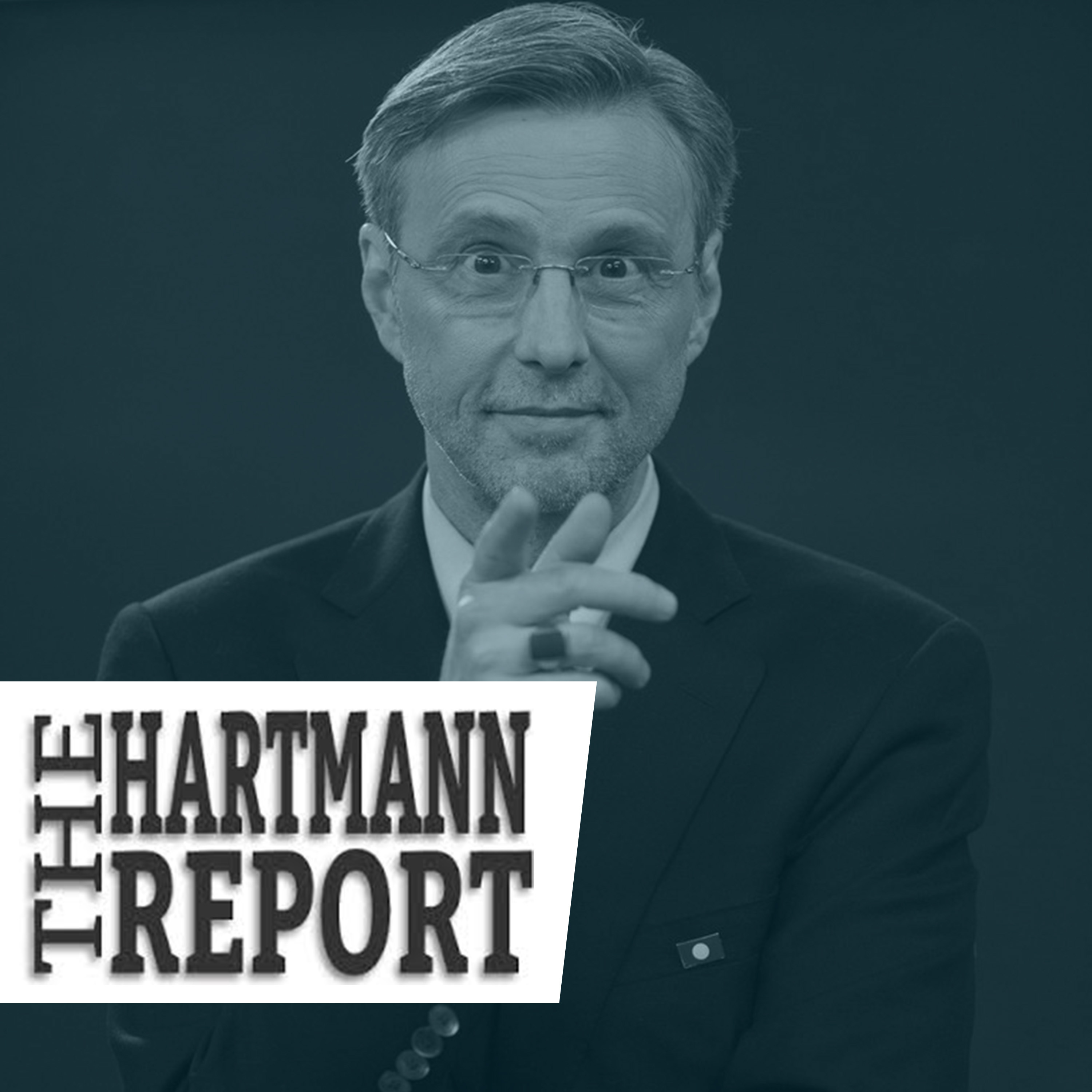
The Hartmann Report
Thom Hartmann
The Glenn Show
Glenn Loury
#RolandMartinUnfiltered
Roland S. Martin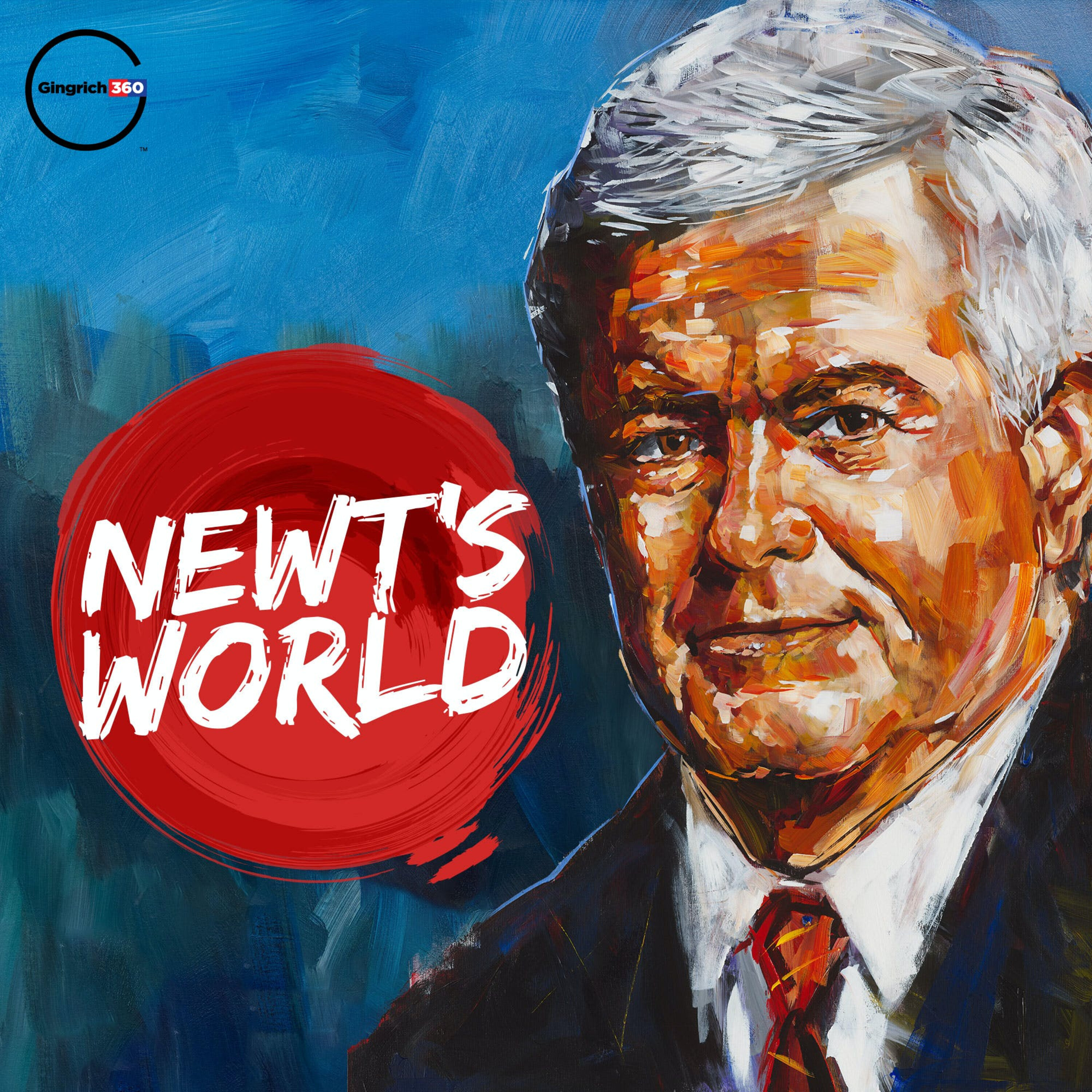
Newt's World
Gingrich 360
Pod Save America
Crooked Media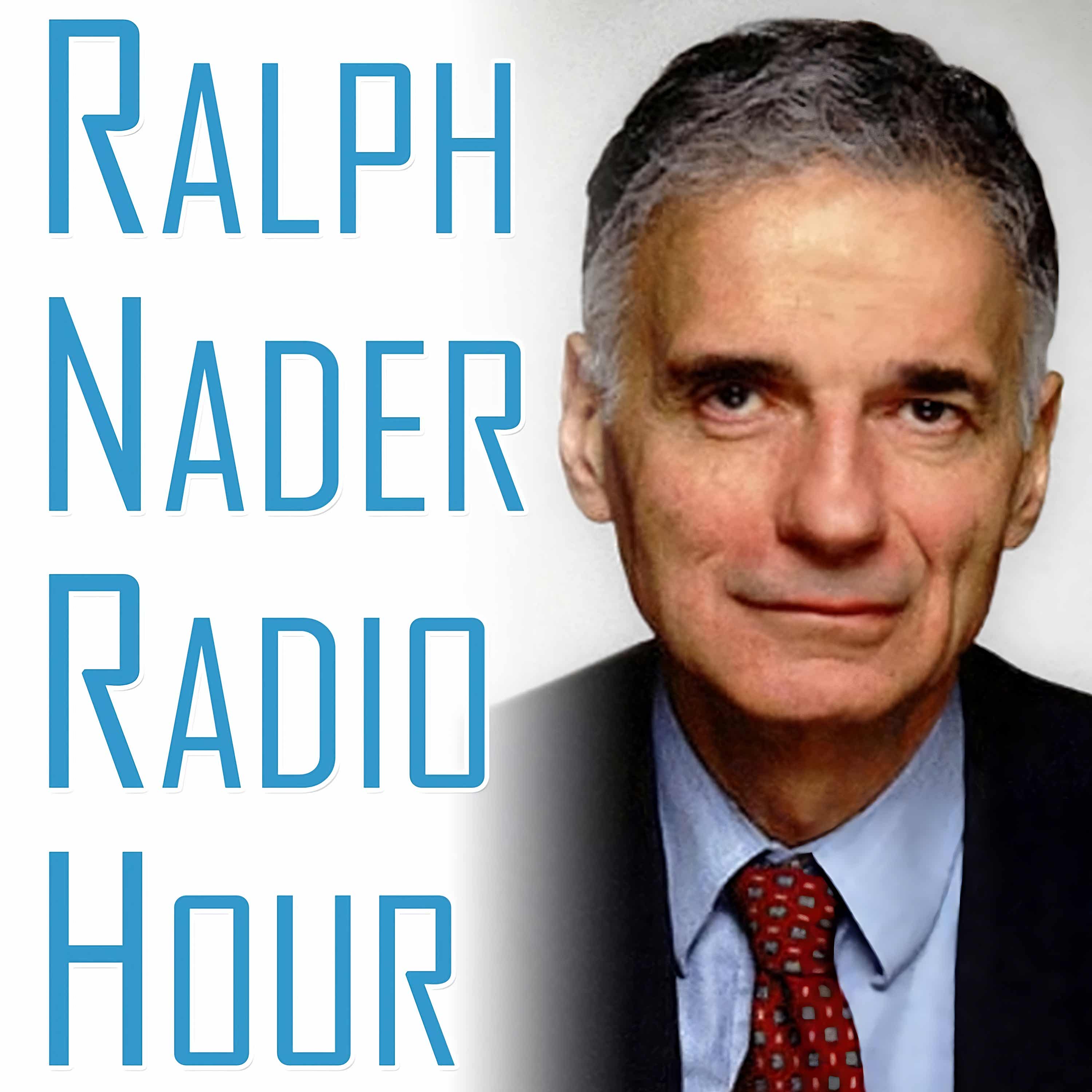
Ralph Nader Radio Hour
Ralph Nader
Bannon`s War Room
WarRoom.org
Bannon’s War Room
dan fleuette
The Young Turks
TYT Network
The Beat with Ari Melber
Ari Melber, MS NOW
The Damage Report with John Iadarola
TYT Network
The Majority Report with Sam Seder
Sam Seder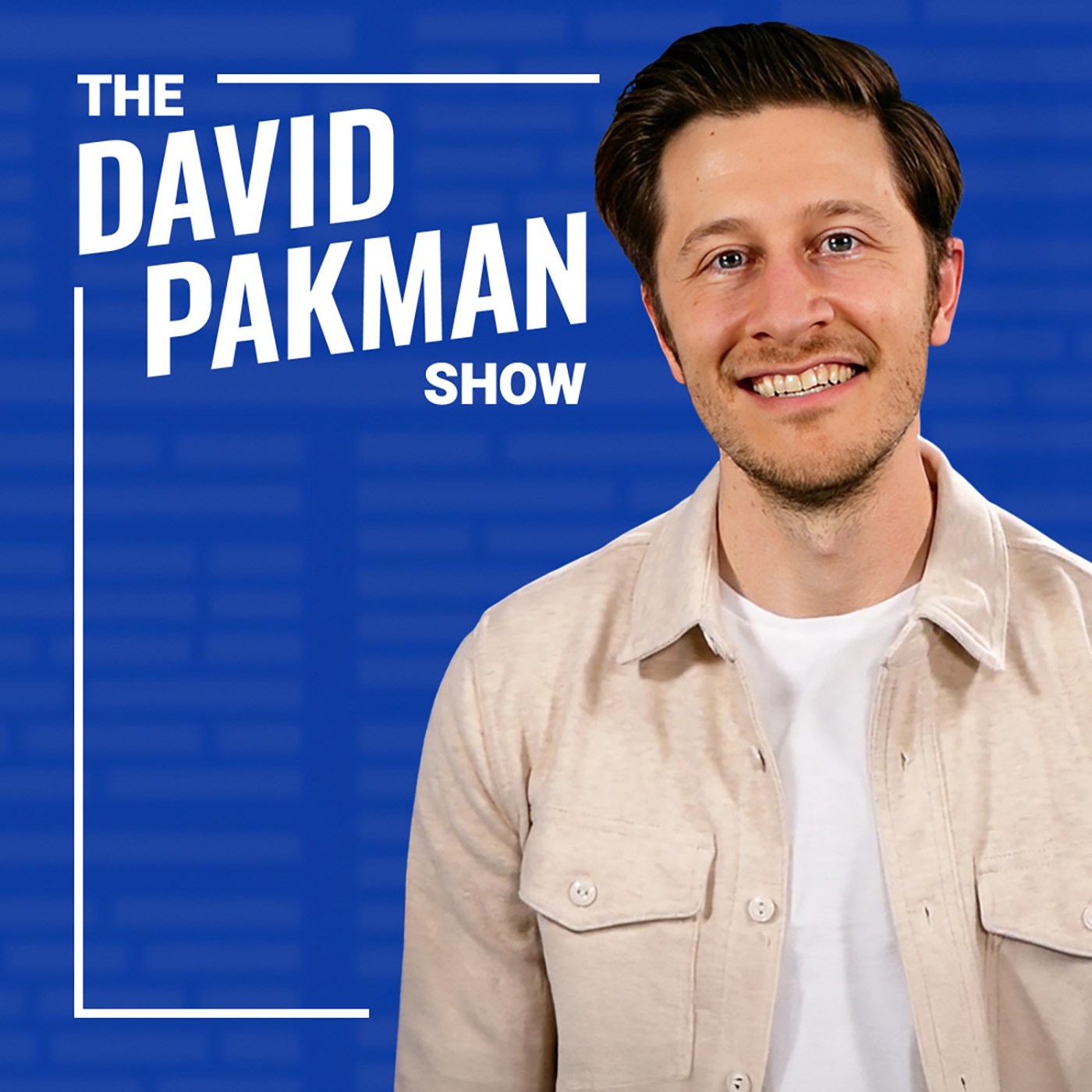
The David Pakman Show
David PakmanGet A Grip with Kendall Reusing
Kendall Reusing
Ultimately with R.C. Sproul
Ligonier Ministries
Grace to You: Radio Podcast
John MacArthur
The Briefing with Albert Mohler
R. Albert Mohler, Jr.
StarTalk Radio
Neil deGrasse Tyson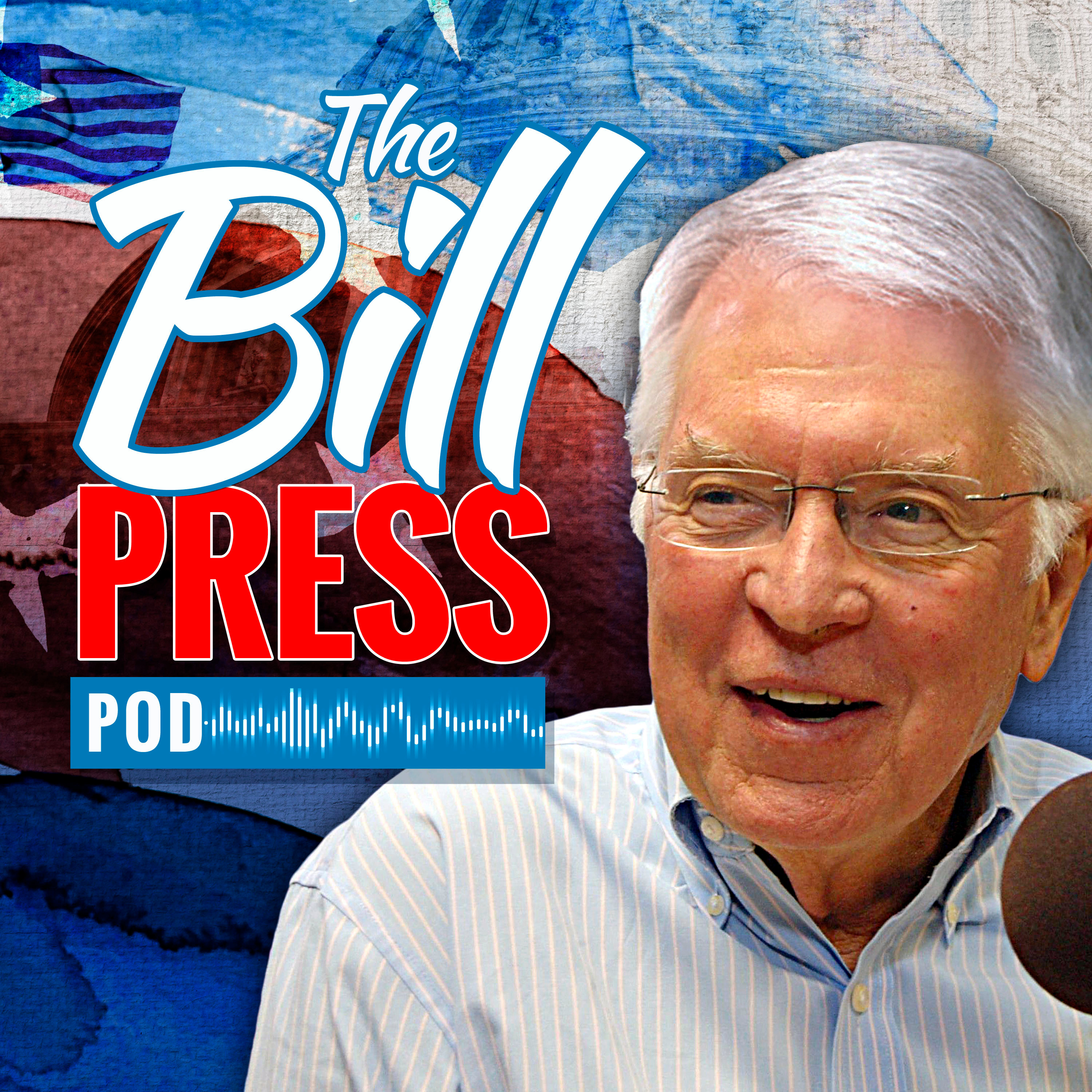
The Bill Press Pod
BP Pods
Ask Pastor John
Desiring God
The Weekly Show with Jon Stewart
Comedy Central
Ask Ligonier
Ligonier Ministries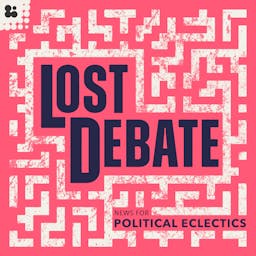
Lost Debate
The Branch
Coffee-Time-Again
Dale Hutchinson
5 Minutes in Church History with Stephen Nichols
Ligonier Ministries
The Ezra Klein Show
New York Times Opinion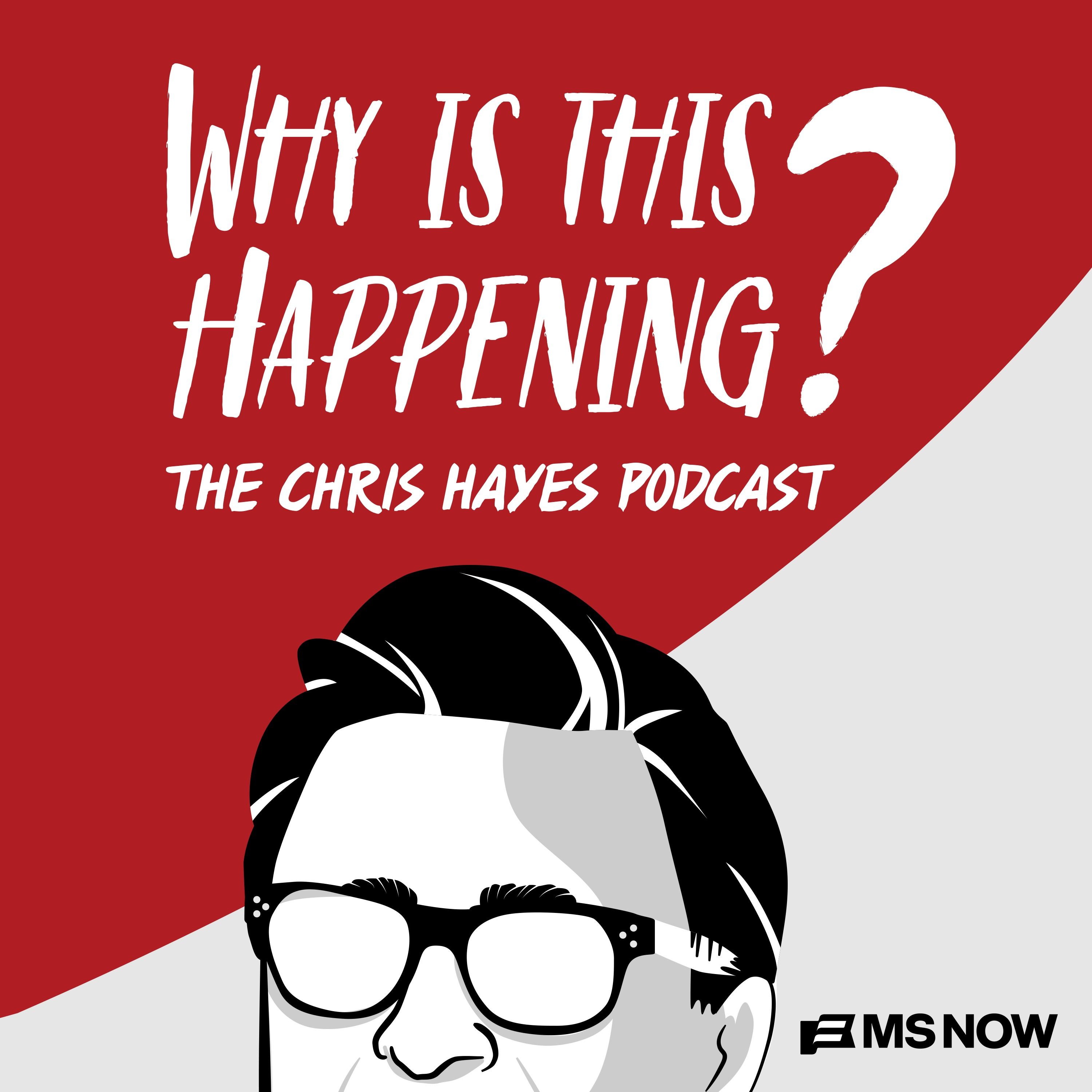
Why Is This Happening? The Chris Hayes Podcast
MS NOW, Chris Hayes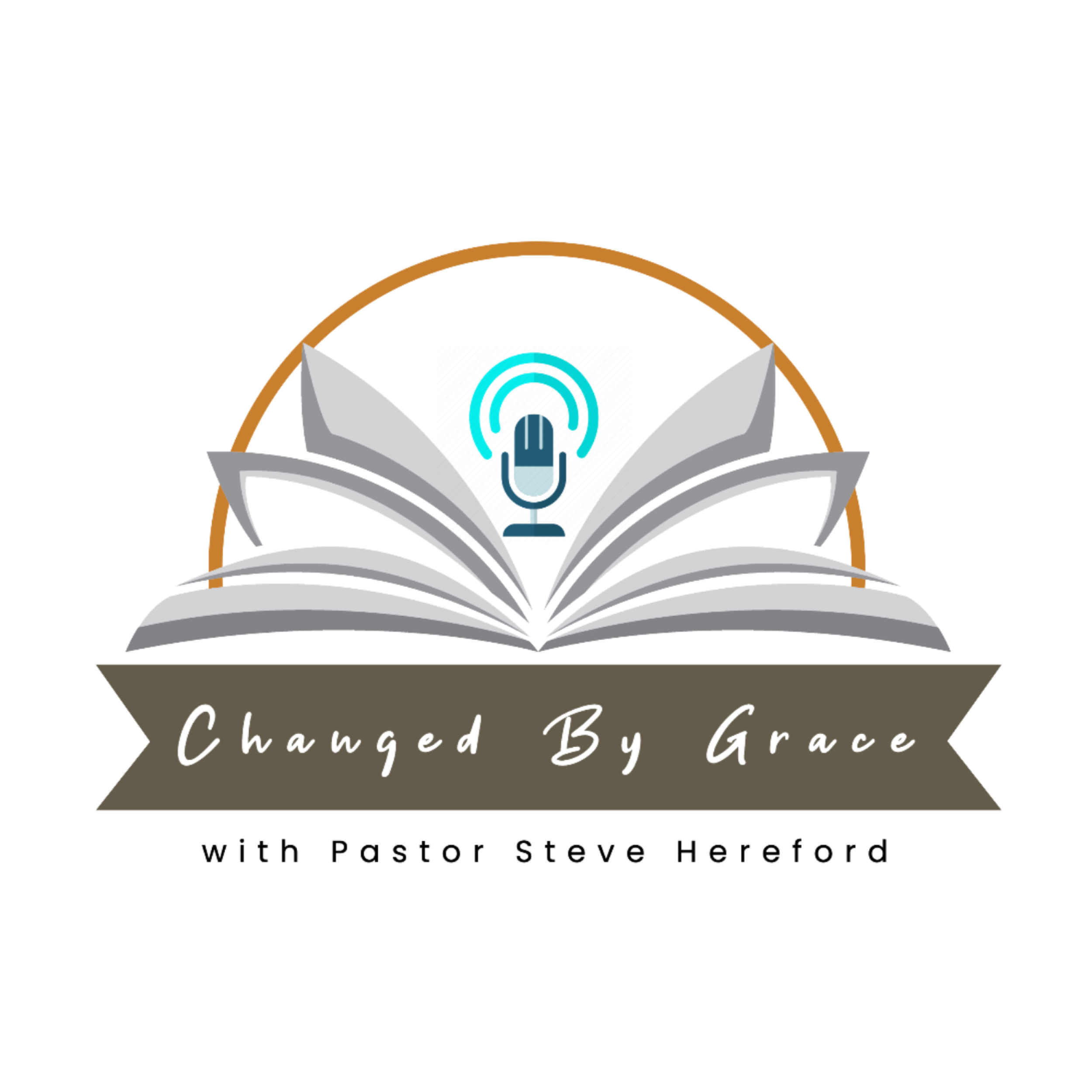
Changed By Grace
PodPoint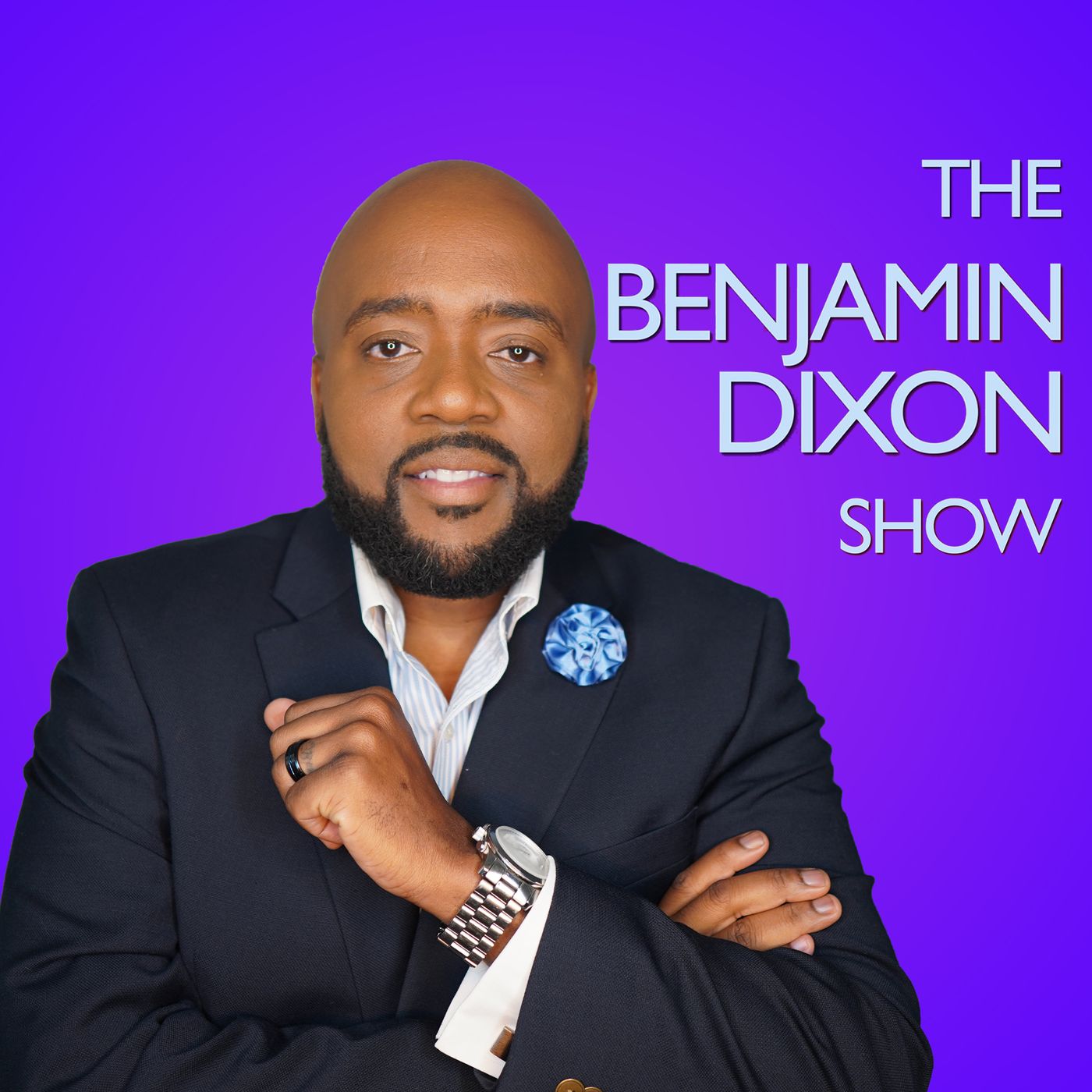
The Benjamin Dixon Show
The Benjamin Dixon Show
Thinking in Public with Albert Mohler
R. Albert Mohler, Jr.
Who Killed JFK?
iHeartPodcastsThe MacArthur Center Podcast
The Master's Seminary
Jean Jacques Machado : No Gi Required
Jay Zeballos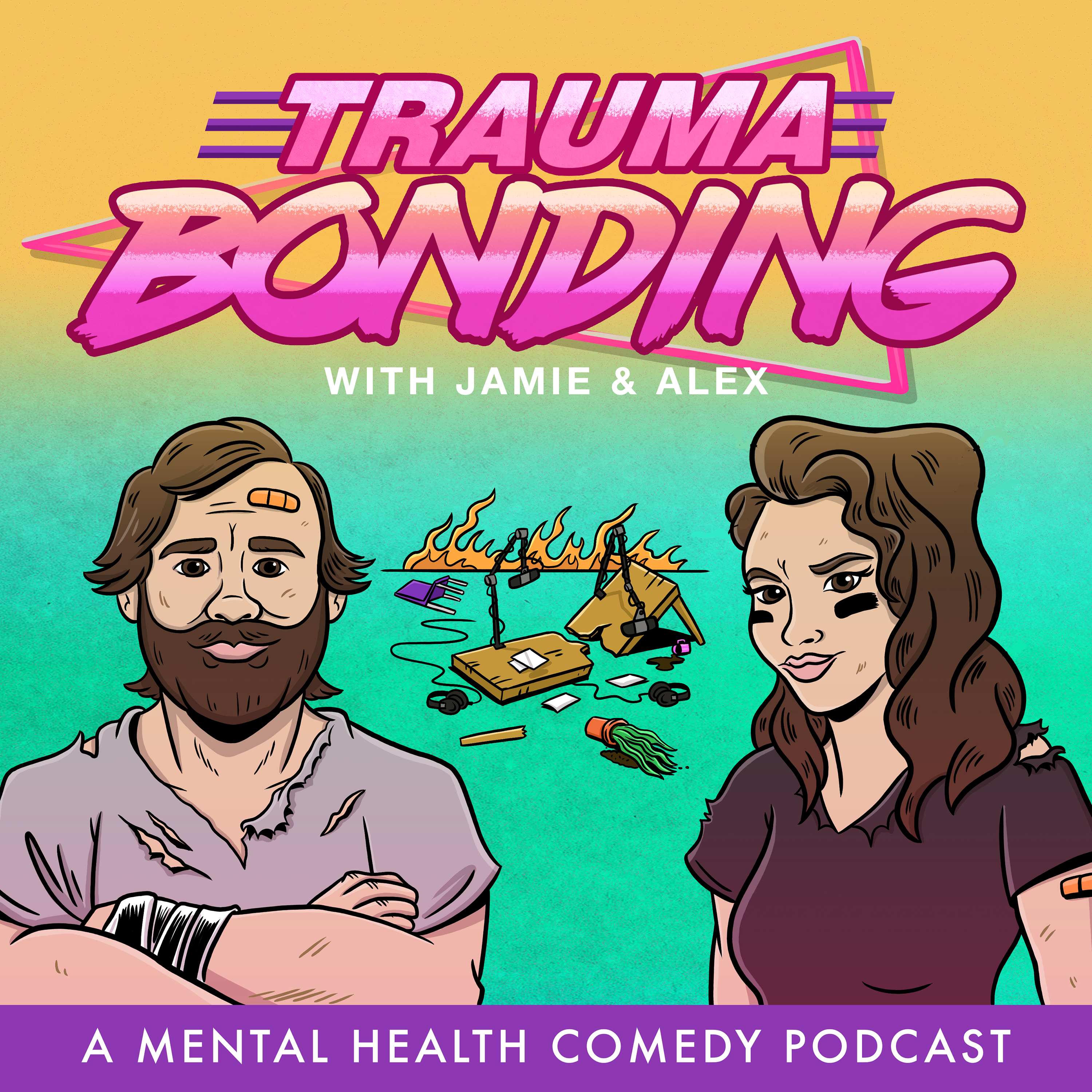
Trauma Bonding
Jamie Kilstein
This Day in History
The HISTORY Channel
The Ben Shapiro Show
The Daily Wire
The Sean Hannity Show
Sean Hannity
Breaking Points with Krystal and Saagar
iHeartPodcasts
The Kyle Kulinski Show
Kyle Kulinski